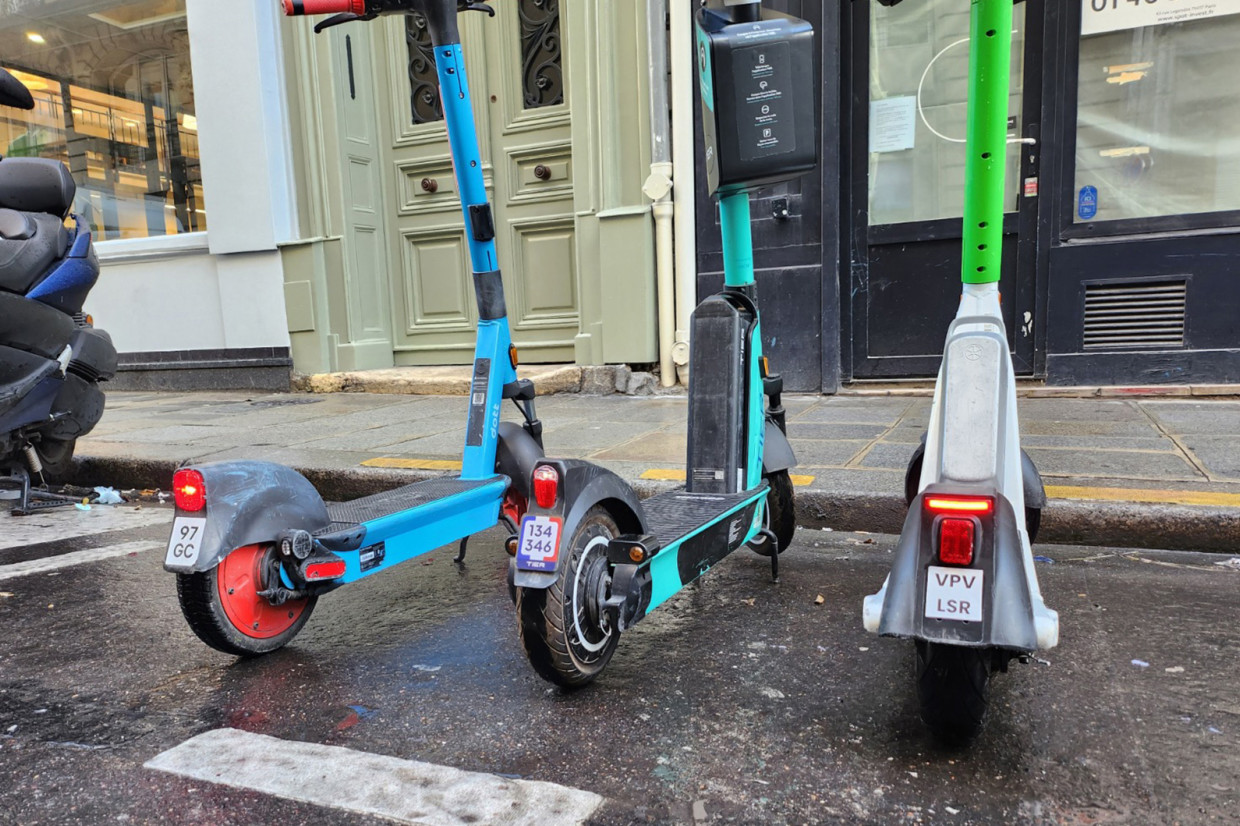
The future of electric scooters in Paris will be decided on by a public referendum that will be held this weekend.
Paris residents have now voted against e-scooters: read the full story here
Mayor Anne Hidalgo announced last year that she was considering a ban on the electric mobility machines in the French capital, sparking a long review by city officials. In response, the firms that run rental e-scooter services in Paris – Dott, Lime and Tier – made a number of proposals for stricter controls on their usage.
While there had been reports that Mayor Hidalgo was set to introduce a ban, she has decided to give Paris residents the final say. The referendum will be held on Sunday (April 2), with residents asked: 'For or against self-service scooters in Paris?'
That will be the only question on the referendum ballot, which is being held separate from any local elections. That has led some critics of the vote to voice concerns about low turnout. The City of Paris has said the result will be binding, regardless of voting levels.
The three firms that operate rental e-scooter schemes in Paris have proposed a series of measures in a bid to secure the future of the machines in the French capital.
The latest e-scooter news in your inbox: get our FREE newsletter
Hidalgo has cited concerns including the use of public space by private firms, and rider safety. In a meeting last year, MoDem councillor Maud Gatel said e-scooters had left “pedestrians afraid to cross a street or walk along the pavement”.
Paris was one of the first major European cities to allow dockless rental e-scooters back in 2018, but a number of constraints prompted it to introduce tough new controls in 2020. That included only allowing three firms to operate a total of around 15,000 machines in the city and limiting speeds to 20kmh (12.4mph), with 10kmh (6.2mph) limits in certain areas. Geo-tracking is also used to shut down scooters that enter public parks, and to enforce designated parking areas.
Are e-scooters legal in the UK? Move Electric's definitive guide
But there are still concerns despite those measures, prompting the mayor to reconsider the future of the schemes. Last year, Paris City Hall requested that the three operators make proposals on how to better integrate the machines into the Paris road system.
In response, Dott, Lime and Tier unveiled 11 measures, two of which are already in place: user age verification and vehicle registration plates.
The other measures include banning users who repeatedly violate the highway code, running education campaigns to raise awareness of responsible use, and funding tests on using camera technology to detect violations.
The firms have also committed to testing new detection technology to stop e-scooters being ridden on pavements, and the creation of a micro-mobility observatory to produce independent data on usage and accidents.
They will also increase the fees they pay to Paris in order to fund better infrastructure for e-scooter users, set pricing to encourage users to walk very short trips, and offer financing for the long-term rental of adapted e-scooters for disabled riders.
In a joint statement after their proposals were published last October, Dott boss Henri Moissinac, Lime chief Wayne Ting and Tier head Lawrence Leuschner said: “Shared e-scooters now offer an efficient, highly regulated transport service which is being used by hundreds of thousands of Parisians. We have listened to the requests from the City of Paris and believe that we have provided robust and effective responses. These have been shared with the Paris City Hall and we are waiting on a response. We are already introducing two strong improvements, with vehicle registration plates and user age verification now in place.
“We have no doubt that Paris will maintain its leadership in the fight against pollution and the promotion of sustainable transport. We are not preparing for a ban, which would be a step backwards when other major global capitals are making this type of service permanent.”
Many of the measures the three providers are suggesting for Paris have been tested or are in use in other markets. The three firms also run e-scooter rental schemes in London, which already features designated slow zones, a commitment to stage awareness initiatives and rider verification.
Ahead of the vote this weekend, Lime has been testing a system that can automatically lock e-scooters when it detects more than one person is riding on them, and a video system to help police enforce fines.
The referendum is focused purely on rental e-scooters, and would not place new limits on the rapidly growing use of private e-scooters on the streets of Paris.
The French government has recently announced plans to tighten up shared scooter usage, including the introduction of an age limit or 14 or 16 years old and a number plate requirement.
Paris residents have now voted against e-scooters: read the full story here
READ MORE
Subscribe to the Move Electric newsletter
e-CARS
Chinese car brand Nio to expand into UK by end of 2023
Driving a Citroën Ami around London: five things we learned
New Polestar 3: 380kW performance EV aims to 'redefine' the electric SUV
e-BIKES
Seven essential accessories to improve your e-bike life
The Lake District village that's pioneering community e-bike schemes
e-MOTORBIKES
Honda to launch more than 10 electric motorbikes by 2030
New Zero DSR/X launched as electric adventure motorbike
Stilride: the brand reinventing electric motorbike production
e-SCOOTERS
8Tev B12 Roam e-scooter review
Pure Electric launches two new machines that 'reinvent' the e-scooter
Rise in e-scooter accidents prompts call for 'urgent' government action
e-WORLD
Artemis electric ferry revealed for Bangor to Belfast service
New Mobilize Solo Concept is a safety-conscious e-scooter rival
Volta Zero: the electric truck tearing up the rule book for the electric age
